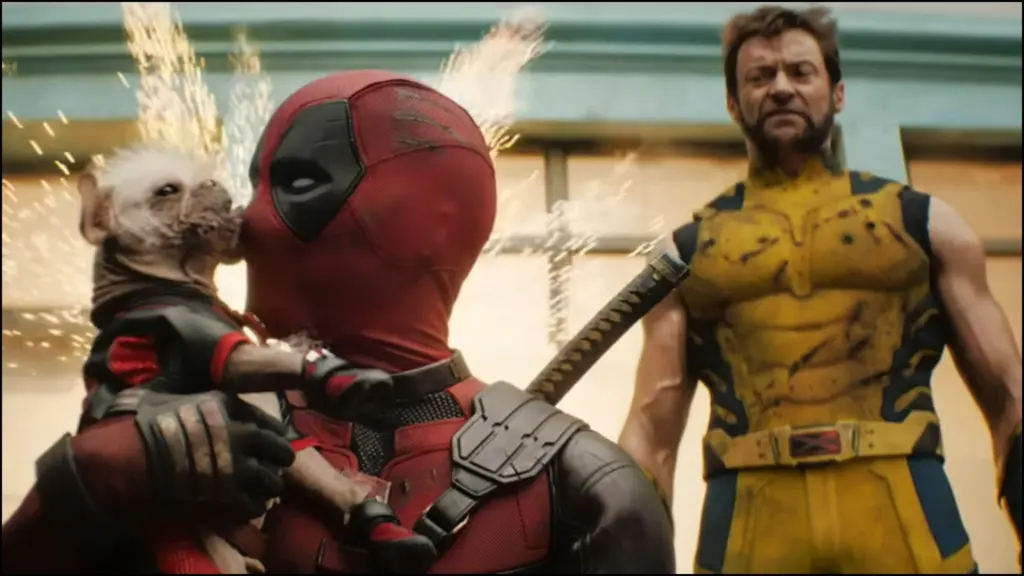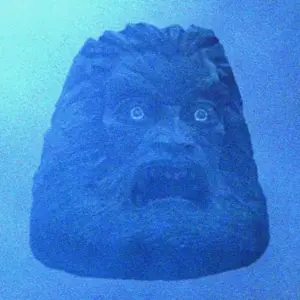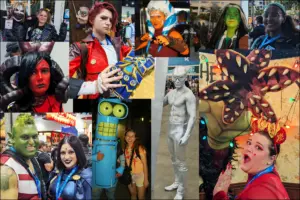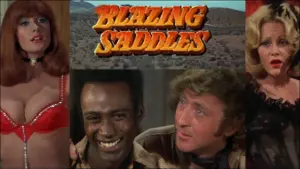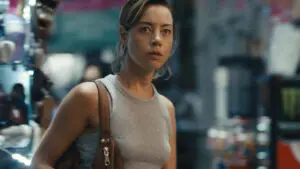Deadpool & Wolverine is a meat grinder of a superhero movie, or rather, a meta grinder. It’s irreverent about its irrelevance, self-obliteratingly obnoxious, and entertaining to the point of exhaustion.
Ever since Avengers: Endgame completed the propulsive, decade-long arc of the Infinity Saga in 2019, Marvel’s Disney has unfurled what they call the Multiverse Saga, mainly an excuse to keep rebooting via reset timelines, like a form of mutating, self-consuming bacteria. As with Guardians of the Galaxy 3, there’s a go-for-broke, last-hurrah sensibility in play, reaching ever further for novelty before all the key actors age out of their toned-body, leotard-wearing roles.
Ryan Reynolds, as Deadpool, outdoes himself breaking the fourth wall and talking directly to the audience, as if to say, “I’m giving you what you want, and can we agree that this is all kinda stupid? We’re better than this, but also here’s more of it, and this time we’re going to push it too far. If you don’t like it, you can suffer, and then laugh at your suffering because your gluttony for this stuff is part of what we’re satirizing. Buckle up.”
The first two Deadpool movies came out in 2016 and 2018, and their adult tone, funny violence, and mockery of superhero tropes deftly offset the seriousness of the other Marvel Cinematic Universe films of that period. The scenery chewing Ryan Reynolds is reminiscent of Bugs Bunny saying “Ain’t I a stinker?” before stabbing villains furiously with a carrot. Deadpool’s constant taunting reminds me of a line in the book The Razor’s Edge about how the Philistines have discarded the rack and stake, “having found a much more deadly weapon of destruction — the wisecrack.” Except that Deadpool keeps the rack and stake.
Deadpool’s voice-overs suggest we’re in on a joke together, but they’re so pervasive in Deadpool & Wolverine that they feel more like enlightened nihilism. By the end of the movie, I wanted someone to rebuild the fourth wall with concrete reinforced by adamantium rebar.
The first Deadpool at least had a love story, and it set itself far apart from other superhero movies by daring to be sexual, with Reynolds’ character reveling in shared pleasure with his girlfriend, as played by Morena Baccarin. The second movie reached for slapstick-violent heights with the ill-fated X-Force and their ridiculous demises (particularly memorable was The Vanisher, an invisible hero briefly revealed as a Brad Pitt cameo during his wide-eyed death by electrocution). These films were fun but forgettable, especially hazy six years and a pandemic later, when nerds en masse have moved on.
Deadpool & Wolverine also serves as a sequel to Logan, 2017’s moody and deliberately downbeat swan song for Wolverine and Charles Xavier of the X-Men films. It’s strange for a film to be sequel to two sets of movies of such polar opposite tones, but Deadpool & Wolverine skews heavily toward the snarky Deadpool approach from the beginning, much to the increasing irritation of Wolverine (who’s only a multiverse version, or multiversion?, of his former self).
In this film’s opening scene, Deadpool digs up Wolverine’s corpse from the mound where he was last seen in Logan. It’s symbolic of the movie’s whole purpose, which is to exhume a dead genre and take it to disturbing levels — telling us that nothing’s sacred and we’d be fools to take it seriously. When Deadpool holds up Wolverine’s rotten head and dangling adamantium skeleton, it’s meant to be shocking-funny, but I found it unpleasant, and then felt lame for failing the movie’s opening litmus test for grossout humor.
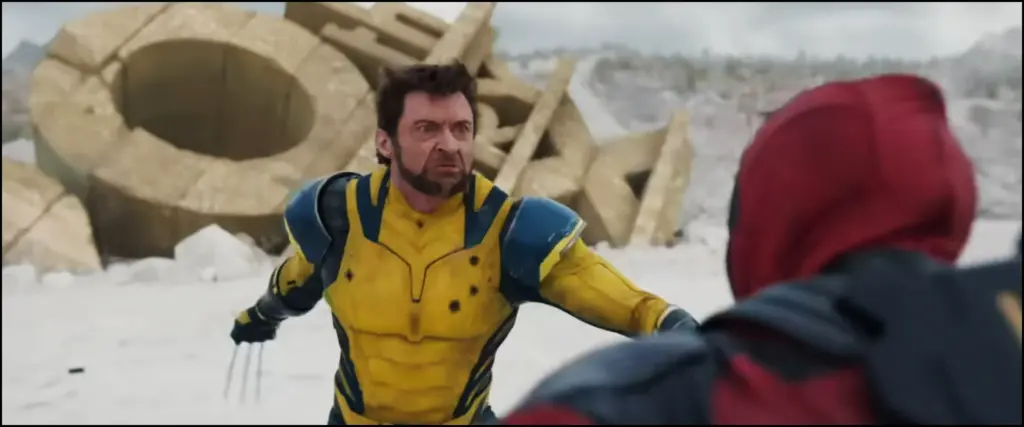
Soon a series of Sacred Timeline police emerge from magic doors (ala Time Bandits) to attack Deadpool, who can’t be killed, and who in turn kicks the faceless antagonists in their groins while slo-mo dancing and mock-masturbating Wolverine’s decayed femur bone. Deadpool’s crude ballet signifies his response to Internet commenters complaining in forums: the movie shooting down its anticipated negative reviews in real time.
The remarkable thing about Deadpool movies is they manage to tell an actual superhero story at the same time there’s an overlay of mockery. Another reviewer described it as if Deadpool were the MST3K audience for his own movie. In Deadpool & Wolverine, there’s a third overlay in the form of a sincerely-told Wolverine drama, where he’s seeking redemption for his past failures. The shift in tones is deliberate but numbing, and the supporting cast (such as Deadpool’s former girlfriend and apartment mates, plopped together for a low-key party scene) at times seem confused as to whether they’re in an acidic self-parody or a nostalgic homage. Hugh Jackman in particular never acknowledges the broken fourth wall, playing every scene (sometimes alongside Spanish actress Dafne Keen, grown up since Logan) with jarring sincerity, as if the actor himself had no idea he were in a Deadpool movie. Jackman becomes the opposite of comic relief: dramatic relief.
Deadpool’s goal is to fix his timeline, in which he has become a toupee-wearing, used-car salesman almost as pitiful as Jerry Lundegaard in 1996’s Fargo, or Saul Goodman prepping Cinnabon in Better Call Saul. His alter-ego, Wade Wilson, has lost his girlfriend and his mojo, if not his capacity for juvenile one-liners about pegging, or self-referentially apologizing about the film’s “ton of exposition for a threequel.”
Turns out Deadpool’s multiverse is collapsing because Wolverine was the “anchor” of their timeline. Deadpool breaks into the Time Variance Authority and finds another Wolverine as a replacement part for his own multiverse — but only after meeting several incompatible variants, including a Wolverine who hops off a barstool and turns out to be the size of a garden gnome. Soon Deadpool has angered the Time Variance Authority (including a bureaucrat named Mr. Paradox, played by Matthew Macfadyen in a predictably uptight Brit-foppish manner), and he and Wolverine are expelled to a multiverse wasteland called The Void. (Deadpool narrates that you can get a fuller explanation of the region in a certain episode of the Loki TV show on Disney Plus. Sheesh, he’s even providing footnotes.)
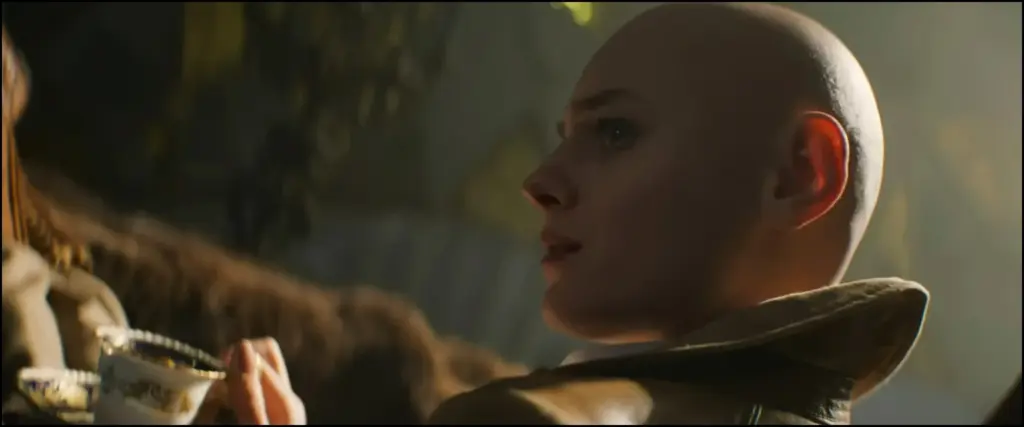
The Void resembles the post-apocalyptic desert of the 2024 summer’s earlier release, Mad Max: Furiosa, and Deadpool & Wolverine parodies the chopper-chariot and other vehicles as if the filmmakers had anticipated Furiosa being a bigger hit than it turned out to be (which is a crime). Once again, the movie has a villain who seems like the most unbeatable badass ever, a bald woman named Cassandra Nova (played by Emma Corrin with a commanding, Jodie Foster merged with Miranda Otto presence) who has total control over all laws of physics in The Void. There’s further plotting about a Time Ripper that can destroy all of the multiverses, and at this point Marvel movies have become as arbitrarily convoluted as the U.S. electoral system.
Soon, Reynolds tells fanboys in the audience to “get your special sock out” when the taunting Deadpool and fed-up Wolverine square off for a fight. Both have regenerating bodies, so whatever damage they inflict is temporary, and it might as well be kink-cosplay sex. Especially in the second fight, an all-night hatemaking session full of stabbing and slicing, which takes place inside a Honda Odyssey and results in Deadpool being tied up, S&M style, in a seatbelt strap.
As they explore The Void, Deadpool and Wolverine meet up with dozens of Marvel characters, including some you probably didn’t want to see again (such as Toad, played by Daniel Medina Ramos). When we meet up with Chris Evans, at first he seems to be Captain America, but we’re soon reminded that Evans also played Human Torch in the unsuccessful early attempt at a Fantastic Four adaptation. Torchy’s overly gruesome demise is even more disgusting (and really, not for kids — it’s that awful) than when an earlier Deadpool movie flashed back to Ryan Reynolds being shot in the head for considering a role in the poorly received DC Green Lantern movie.
Deadpool has always been the ugly dog castoff of the underdog superheroes, mainly the X-Men, with their Marvel world kept separate from the more lunch-box-adornable Avengers. The Void scenes embrace this status and revel in cameos from the earliest Marvel movies, such as Wesley Snipes in the Blade flicks of the 1990s, or a weary-eyed Jennifer Garner as Elektra. This cast-revival approach is a natural continuation of the last Spider-Man film that brought Tom Holland, Andrew Garfield, and Tobey Maguire together for a surprise crossover. The use of cameos feels a little played out now, staying safe with inside jokes about a Ben Affleck broken marriage, but not daring to poke fun at Wesley Snipes’s legal issues. Channing Tatum shows up as Gambit, a comic-book character who has never previously been portrayed on film, and he hams it up while flinging powerful playing cards around like late magician Ricky Jay.
In spite of all its plot business, the visuals (stuck as they are with Deadpool’s dull red-and-black suit) can’t keep up with the writing’s overstuffed bin of throwaway lines. There are five credited writers, including Ryan Reynolds and director Shawn Levy, and the script seems like they were having a multi-stream-crossing pissing match to see who could think of the most outlandishly tasteless phrases. It’s like they wanted to channel (or perhaps exhume) Bob Saget telling his profanity-laced Aristocrats story while simultaneously raiding Joan Rivers’s drawers of joke index cards. At different points Reynolds is making jokes about gonorrhea and “untreated chlamydia,” boners, and a character’s helmet wings being “blowjob handles.” The word for this kind of humor is “phallocentric,” and even when the female villain says she’s going to “flick my bean to the Enya box set,” there’s no question the line came from a writer’s room full of dudes. Deadpool doesn’t say “deez nuts” but it wouldn’t have surprised me. The Disney culture has come a long way, from the innocently perky Mouseketeer Annette Funicello singing “Don’t Jump to Conclusions” to Chris Evans ranting about juggling Juggernaut’s balls in his mouth.
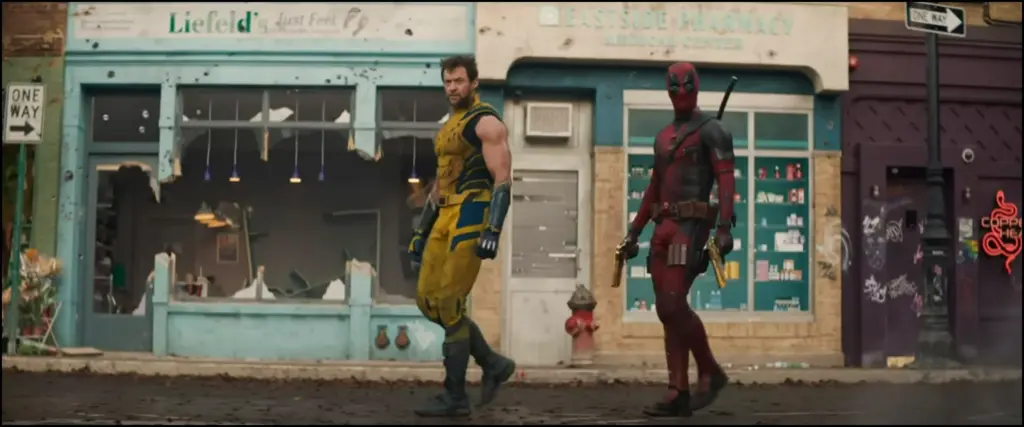
It takes a long time to get to the third act (Deadpool pre-emptively apologizes for the movie’s length), which features a massive showdown among multiple Deadpool variants, including a Nicepool whom Reynolds plays like a long-haired yoga instructor, and an actual, flopping-tongued Ugly Dog, which Reynolds call Dogpool and highlights as if the film’s mascot. Eventually they rumble in an exploding-head extravaganza depicted in a sideways tracking shot reminiscent of the hallway fight in Oldboy.
Deadpool & Wolverine keeps pummeling the audience with meta-type references, such as joking about and casting actress Blake Lively, Ryan Reynolds’s wife; going for corporate-upheaval yuks about the Disney purchase of 20th Century Fox; or winking about how Deadpool comic-book artist Rob Liefeld was terrible when it came to drawing feet (and anatomy in general). The thrill of recognition wears thin after a while. Who cares about Reynolds’ and Lively’s marriage? The movie will age awkwardly if they split up — or not, since it’s comfortable squeezing laughs out of Hugh Jackman’s divorce. There’s some inspired gag writing here but, after peeling away the self-referential layers, the basis for much of the comedy is fairly standard, and the physical humor regressively vaudevillean (including a Marx Brothers-style, window-mime shtick) when it’s not dipping into Herschell Gordon Lewis-level violence.
The accumulation of one-liners and “can you believe we’re doing this?” mayhem is like somebody using a jackhammer to squish a cockroach. Deadpool & Wolverine aggressively deploys self-trivializing humor as a way for Marvel to claim ownership of the superhero genre’s encroaching obsolescence, but it’s too much. The movie can be a lot of fun, but gave me fourth-wall meta whiplash.

